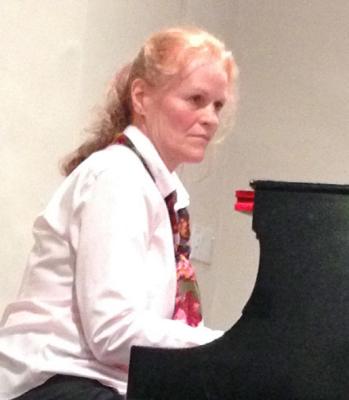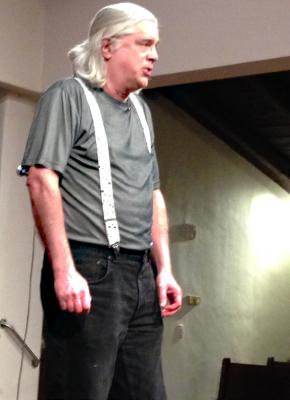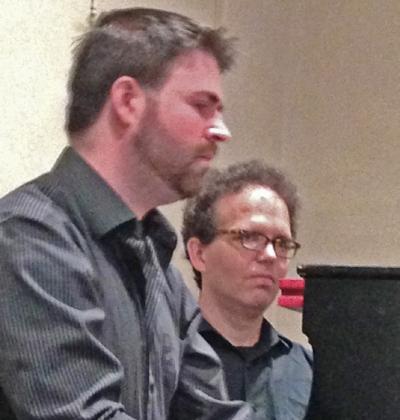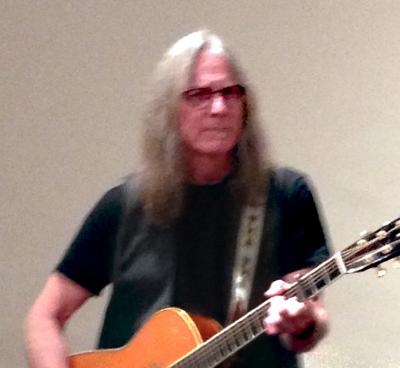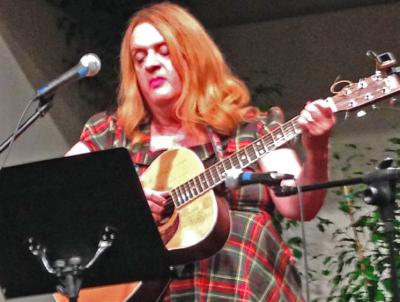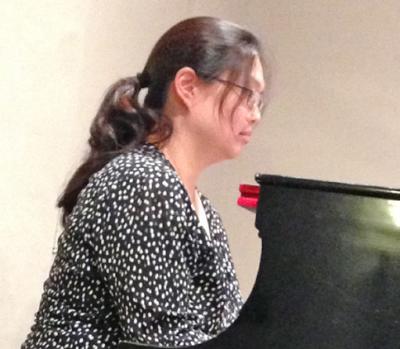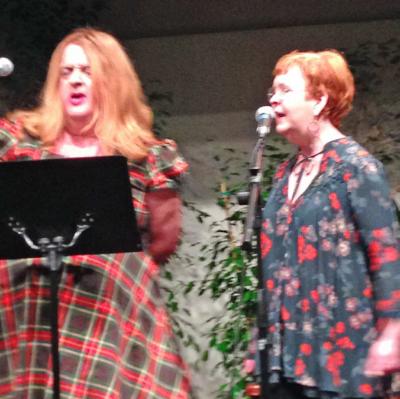Members Endorse Hiring a Developmental Minister
UU Santa Monica members at our March 5 Congregational Meeting voted overwhelmingly to support the Board of Directors in its effort to recruit and hire a developmental minister to join us this summer. The ayes were 84%.
The motion approved was, “The Congregation authorizes the UUSM Board of Directors to complete the developmental ministry search and selection process.” One hundred six members attended the meeting, 16 of whom represented proxies as well as themselves. Three people voted absentee.
An amendment to the motion would have required a two-thirds vote of members at a congregational meeting to approve a developmental minister hired by the board. Proponents of the amendment said that our bylaws and democracy in general required such a vote. Opponents said that the bylaws were silent about the congregation’s role in hiring interim or developmental ministers (as opposed to settled ministers). They also pointed out that a minister being hired to help heal congregational conflict might well think that a two-thirds vote would be difficult to achieve and therefore might be unlikely to apply for the job. The amendment was voted down by about a two-thirds majority.
Our UUA had been pre-recruiting for over a month, so UUA staff were pleased to hear that the congregation had voted to support the board. With extensive outreach and vetting, a strong field of seven candidates was reduced to three top picks. The UUA Ministerial Transitions Team and our regional Congregational Life lead Rev. Jonipher Kwong felt that any of these three candidates would be a great match for our congregation. Your Developmental Ministry Task Force’s next mission is to find the best fit.
As of this writing, the Developmental Ministry Task Force is in the process of interviewing and selecting a final candidate (if, indeed, there’s a great fit). The Board of Directors will likely affirm the choice (if they deem it the right thing to do) at the end of March, and the Task Force will begin preparing to introduce the new minister to the congregation at the May 7 service.
In the meantime, your Task Force co-chairs Kim Miller and Jacki Weber continue to be available on Sundays and by email and phone to answer questions and note concerns. And we will continue to post updates on uusm.org.
— Developmental Ministry Task Force Co-Chairs Kim Miller and Jacki Weber
Self-interest, Irresistible Destiny, or Covenant?
Each Sunday we recite our covenant together, and this year our congregation’s Heart to Heart Circles are spending considerable time developing comfort with the Heart to Heart covenant. Unitarian Universalism calls itself a “covenantal faith.” When UUs ask what that means, we hear that a covenant is “an agreement describing how we want to be with each other.”
The Heart to Heart covenant is a set of rules about how we treat each other. We listen deeply. We don’t try to solve the problems of others. We respect the group by letting someone know when we are going to miss a meeting. We refrain from gossip.
Our Sunday covenant is a little deeper: we believe in love; we seek the truth in freedom; we promise to “dwell together in peace.”
Over the past few years, our congregation has been described as “being out of covenant.” A recent column in the New York Times by David Brooks offers a way of thinking about covenant that helps understand our congregation’s dilemma.
Brooks describes various approaches to romantic relationships and marriage, which in the United States can be largely based on self-interest and checking off boxes. “A lot of our social fragmentation grows out of the detached, utilitarian individualism” that characterizes our “dating market” where “the emphasis is on the prudential choice, selecting the right person who satisfies your desires,” writes Brooks. He contrasts the American ideal of relationships based on getting one’s needs met to the Russian culture, which sees love as irresistible destiny that “requires sacrifice and implies suffering and pain.”
Brooks suggests that successful marriages result from a third approach, based on covenant. “A covenant is not a choice,” he says, “but a life-altering promise and all the binding the promise entails.”
A covenant is not just a set of rules and shared attitudes; it is first and foremost a promise that the relationship is more important than the needs and desires of each individual. Secondly, covenantal love is unconditional and deeply interdependent; Brooks describes it as knowing that “the other person’s love is not going away, and in which the only way to survive the crises is to go deeper into the relationship itself.” Finally, a covenant serves a larger purpose that is transformative. People in a covenant try to love each other in a way that “brings out their loveliness” with the goal that they themselves will “become a slightly less selfish version of themselves.”
When there is breakage in a covenantal relationship, people go through the “normal episodes of confession, apology, defensiveness, forgiveness and loving the other most when there’s nothing lovely about them.” Have we even begun that process here in our church? Can we even acknowledge how we have hurt one another?
To return to covenant will require that we do not sweep our differences away, but face them with love and humility, instead of self-interest. Brooks assures us that “the deepest joy sneaks in the back door when you are surrendering to some sacred promise.” Each of us must decide whether our congregation offers a place of unconditional love, where our relationships with each other are based not primarily on our own needs, but on the good of the whole.
— Abby Arnold
Right Relations Task Force Report: Stories of Personal Meaning and Stories of Conflict
The Right Relations Task Force and Interview Team spent much of March (continuing into early April) engaged in Sharing Personal Stories of Meaning. We are mining these stories for the core values that we hold as a community. According to Ismar Schorsch, core values are “the felt commitments of a lived religion, the refraction of what the people practice and profess.”
Our Right Relations Team offered a worship service March 26 to present some Personal Stories of Meaning and emerging Core Values. We also have a “storyboard” in Forbes Hall where you may read more of the stories shared by your fellow congregants and see images created by our children.
We are listening deeply to the stories you share so that we can reflect back our shared core values. This process will culminate in the creation of Congregational Core Values, to be presented and affirmed at our annual congregation meeting in May. Core values are what we stand for and why we exist. They are the glue that holds this community together. We want to hear as many of these stories as possible from our congregants, and there is still time for everyone to engage in this process. If you have not yet participated in a sharing group, we encourage you to do so. You may sign up at our information table on Sunday mornings, or email us at
rightrelations@uusm.org. If you can’t get to a group, please share your story at
https://tinyurl.com/uustories, where a form explains the process. And if you attended a group, please enter your story now at the same website. So far almost 50 stories have been shared; Leslie Beauvais shares the story on this page.
Starting in April, the next part of the Right Relations process is to share stories of conflicts we have faced with others where these were turned into opportunities to strengthen and transform relationships, even if we continue to disagree on the issues. We will be offering several occasions to Share Stories of Conflict Transformation. These include open groups which you may sign up for at the Right Relations table.
We encourage you to participate and offer an experience where you were able to resolve a conflict while maintaining and deepening relationships. With this collection of stories, the Right Relations Team will begin to develop our Covenant of Right Relations, to present to the congregation and affirm at a meeting in the fall as we begin our ministry with our future developmental minister.
The Right Relations Task Force continues to offer Listening Circles on a monthly basis. For more information about Sharing Groups and Listening Circles, stop by our table on Sunday mornings or email us at
rightrelations@uusm.org.
As part of our support of Right Relations in our congregation, members of the Right Relations Task Force also provided groundrules and process observation for our recent congregation meeting on March 5, and will do so again for our Annual Meeting.
— Our RRTF and Interview Team: Ed Brand, Helen Brown, Liza Cranis, Vicky Foxworth, Wendi Gladstone, Cindy Kelly, Alison Kendall, Audrey Lyness, Cindy Martin, Emily Linnemeier, Margot Page (co-chair), Tom Peters, Vilma Ortiz (co-chair), Buddha Jonathan Quant, Kim Santiago-Kalmanson, Nalani Santiago-Kalmanson, Beth Rendeiro, Rima Snyder, Joe Straw, Sue Stoyanoff, John Sussman, Linda van Ligten, James Witker, Patricia Wright, Steve Young, and Sylvia Young
So far almost 50 stories have been shared; Leslie Beauvais shares this story:
My story begins when I first visited this congregation in 2012. Ed Brand, my then boyfriend (now husband), was with me. It was his idea to visit because Roy Zimmerman, a singer/songwriter that we followed, was performing at that Sunday service. It had been quite some time since I had stepped foot in any church. In 2004, after 14 years of membership, I had left a Christian congregation that I had been a part of. That church had become very destructive and abusive in my life. So making the decision to visit any church was a big deal for me. But Eddie was confident that I would love it because years before, he had visited quite often. Although I was still a little frightened, I was excited to visit any church that would have Roy Zimmerman performing his political and radical songs. And since Eddie was going with me, I was heartened. I was amazed that I loved everything about the service… its form and content. I was heartened by the fact that everyone was accepted and that I wasn’t being preached at. Instead I felt I was being shared with by Rev. Rebecca. So we stayed. We eventually joined the church and were married by Rev. Rebecca in September 2015.
Quotations Related to Transformation
Lois Hutchinson has provided these quotations that relate to our April ministry theme, Transformation.
 April 2 - CALL THE MIDWIFE
April 2 - CALL THE MIDWIFE - O Wind, If Winter comes, can Spring be far behind? —
Percy Bysshe Shelly
April 9 - STILL WE RISE - One day, when the glory comes, It will be ours. It will be ours. Oh, one day, when the war is won, We will be sure. We will be sure. — John Legend, Common, and Rhymefest
April 16 - MORNING HAS COME - He showed her swelling leaf-buds on rose branches which had seemed dead. He showed her ten thousand new green points pushing through the mould. They put their eager young noses close to the earth and sniffed its warmed springtime breathing. — Frances Hodgson Burnett
April 23 - EARTH SUNDAY - What we’re fighting for now is each other. — Wen Stephenson
April 30 - “WHO CARES? I DO!” (YRUU YOUTH GROUP SUNDAY) - Without passion man is a mere latent force and possibility, like the flint which awaits the shock of the iron before it can give forth its spark. — Henri-Frédéric Amiel
Elections Are on the Way
Come to the Annual Meeting May 21. Avoid using absentee or proxy ballots: Ensure that we get a quorum.
At the 2017 Annual Congressional Meeting, May 21, we will exercise our democratic muscles once again and elect UUSM leadership for 2017-18. We’ll be voting on a complete slate of candidates nominated by the Nominating Committee and possibly some members running by petition.
Board of Directors
The four officer positions will appear on the ballot – President, Vice-President, Secretary, and Treasurer – for 1-year terms. All the officers who are currently serving — respectively, Ron Crane, Jacki Weber, Beth Brownlie, and Kim Miller — are eligible to seek nomination for re-election.
Two of the four Members at Large seats will appear on the ballot for 2-year terms: the seats currently held by Joe Engleman and Emily Hero. Emily is completing her first term as an elected Member at Large (previously she had served by appointment) and is eligible to seek nomination for re-election. Joe has already announced that he will not seek re-election to the board. Members at Large Jerry Gates and Kikanza Nuri-Robbins both have another year on their current terms.
Patricia Wright will most likely continue to put her experience to work as past president.
Nominating Committee
Two seats on the Nominating Committee — currently held by Wendi Gladstone and Beth Rendeiro — will appear on the ballot for 3-year terms.
In 2016, at the request of the Nominating Committee, Jo An Peters generously stepped in to serve when Melinda Ewen resigned. That seat will appear on the ballot for the 2-years remaining in that term.
Bob Dietz, Barbara Gibbs, and James Witker will continue their current terms.
The Nominating Committee will present an entire slate of nominees for the open seats on the board and Nominating Committee at the April 11 meeting of the Board of Directors. Because of conflict-of-interest measures in the UUSM bylaws, the Nominating Committee is prohibited from naming any of its current members to any of these positions. Like every other church member, Wendi, Beth, and Jo An may choose to run by petition for any seat, including re-election to the seat they currently hold.
Any voting member of the church may run for any open seat on the Board of Directors or Nominating Committee. Just submit your petition, signed by 10 or more voting members, to the church office. All submitted petitions and signatures must be reviewed by the secretary of the board, Beth Brownlie, for validation by May 1. (The office staff requests that, if possible, petitions be submitted by mid-April.)
Please join us in thanking and honoring all our members who volunteer to serve in leadership.
The final ballot for the May 21 elections will be part of a church mailing sent out on or before May 6. We will also be voting on the church budget at the Annual Meeting, and possibly amendments to the bylaws and other important resolutions. New and renewing members read into the rolls at the April 11 board meeting will become voting members after 40 days, and thus will be eligible to vote. Voting members will have the options to vote in person, by proxy, or by absentee ballot. Let us hear your voice as, together, we meet the future.
— Bob Dietz and Lois Hutchinson
 Moments of Connection and Love
Moments of Connection and Love April 2 - CALL THE MIDWIFE - O Wind, If Winter comes, can Spring be far behind? — Percy Bysshe Shelly
April 2 - CALL THE MIDWIFE - O Wind, If Winter comes, can Spring be far behind? — Percy Bysshe Shelly
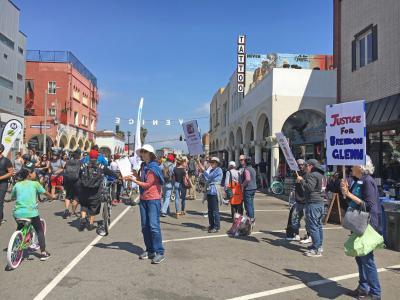
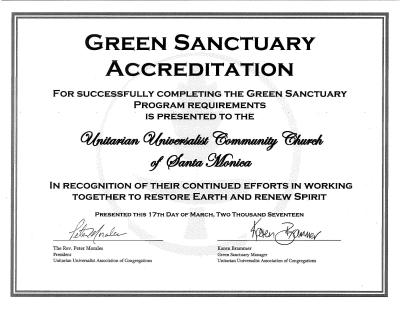 In February 2007, the Green Sanctuary Committee was voted into existence at an FIA Town Hall Meeting. Those at the meeting voted to take actions and apply to the UUA to become a Green Sanctuary Church.
In February 2007, the Green Sanctuary Committee was voted into existence at an FIA Town Hall Meeting. Those at the meeting voted to take actions and apply to the UUA to become a Green Sanctuary Church.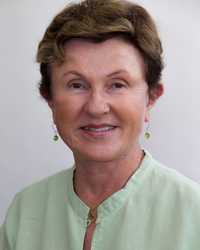 Developmental Minister, Budget, RE Assistant, Plumbing, and More
Developmental Minister, Budget, RE Assistant, Plumbing, and More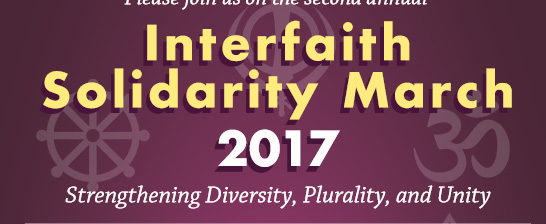 Starting at Wilshire Boulevard Temple, 3663 Wilshire Blvd., LA and ending at the Islamic Center of Southern California (program and fabulous food), with stops at St. Basil Roman Catholic Church and Immanuel Presbyterian Church. Rev. Rebecca and 24 others from our congregation participated last year. Can we double that? Or more? In the past year, racism in our country has become more overt. Threats and hate crimes against Muslims, Jews, and other religious minorities have increased. Marching in solidarity with our interfaith neighbors is more important than ever. Please see instituteforreligioustolerance.org.
Starting at Wilshire Boulevard Temple, 3663 Wilshire Blvd., LA and ending at the Islamic Center of Southern California (program and fabulous food), with stops at St. Basil Roman Catholic Church and Immanuel Presbyterian Church. Rev. Rebecca and 24 others from our congregation participated last year. Can we double that? Or more? In the past year, racism in our country has become more overt. Threats and hate crimes against Muslims, Jews, and other religious minorities have increased. Marching in solidarity with our interfaith neighbors is more important than ever. Please see instituteforreligioustolerance.org.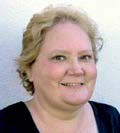 From Our Director of Religious Education:
From Our Director of Religious Education: